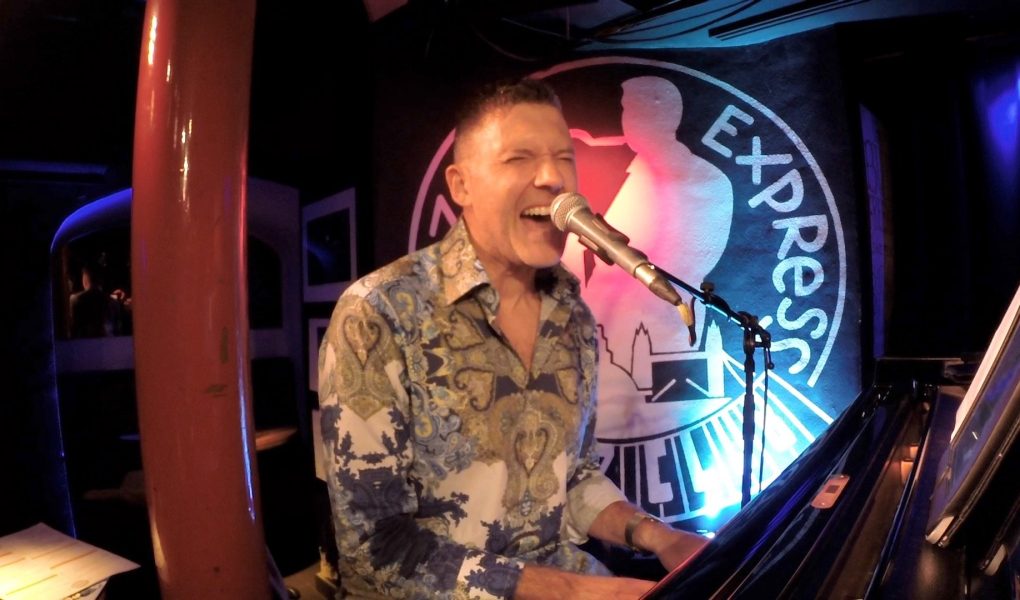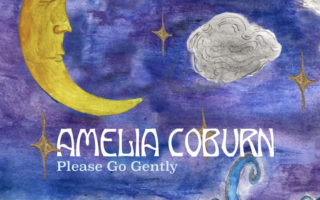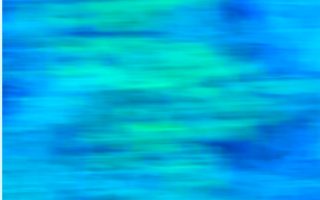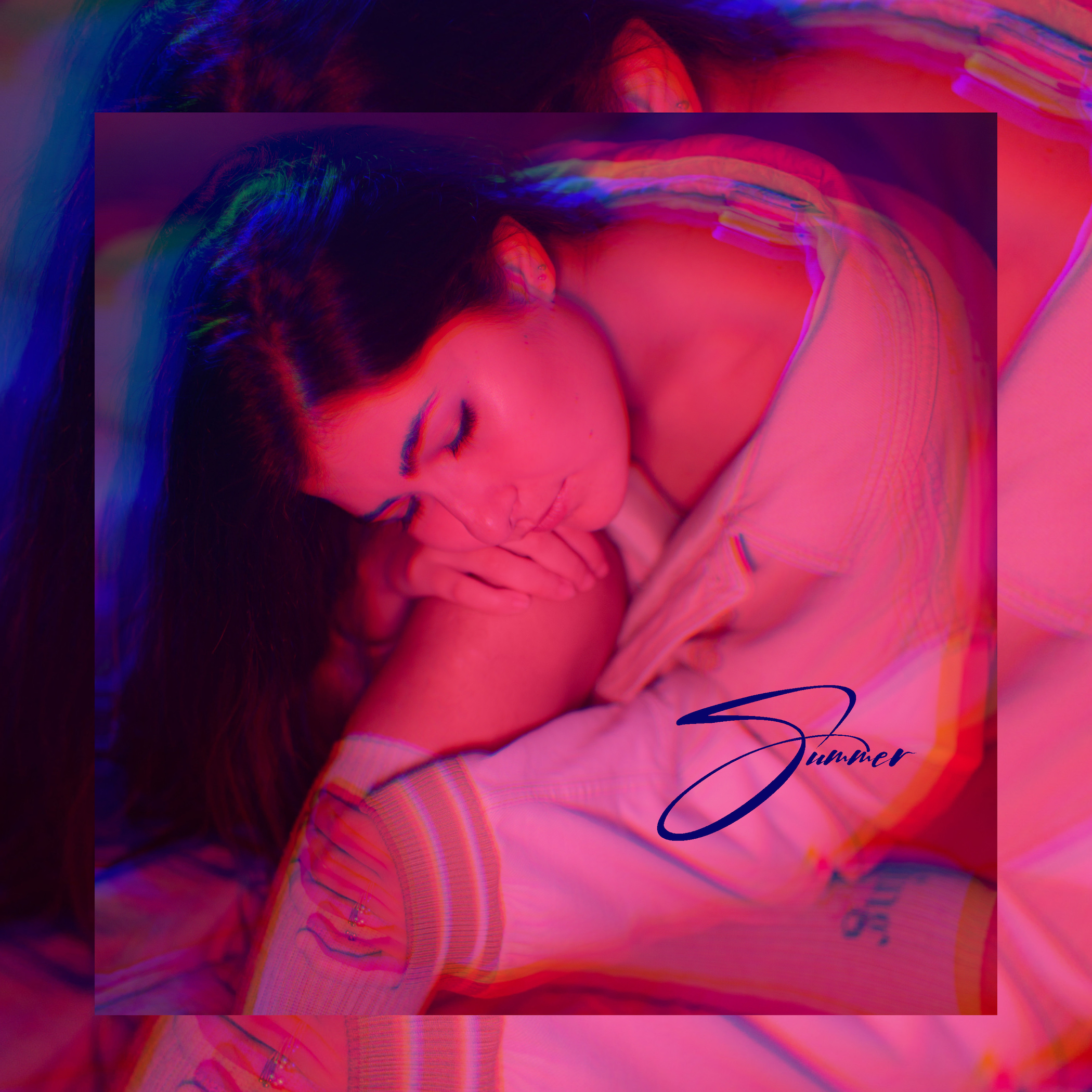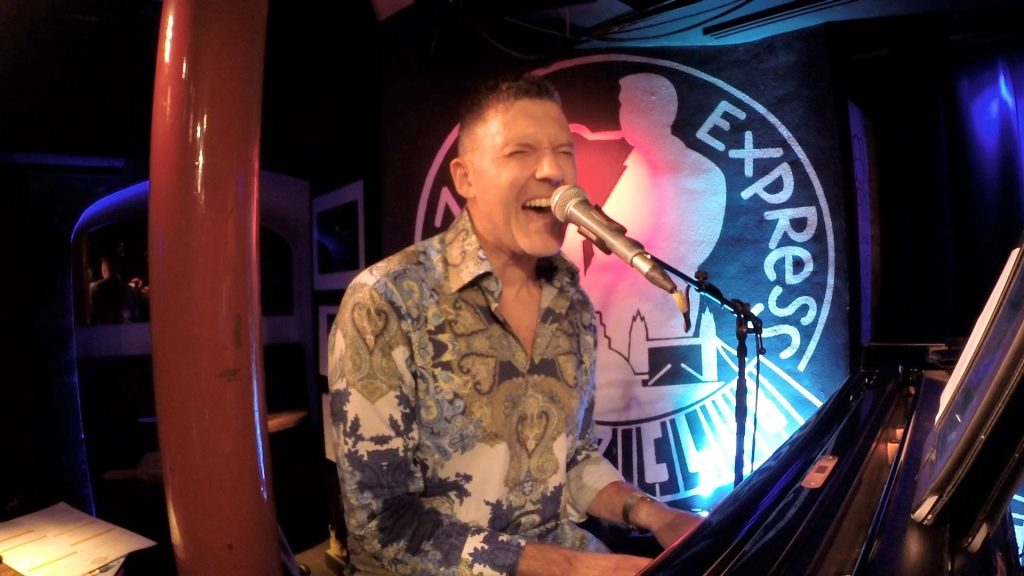
Hello Robin how are you?
Feeling great thanks, slightly frantic with preparations for the album launch event, but as the album has been 6 years in the making from the first inspiration and came out today it feels like a big moment.
Congratulations on the release of Return From The Source how does it feel?
There’s a slight calm about the fact the album is out. Throughout the process you’re making so many decisions that you know will impact the final result. Edit, mix, master decisions, then single releases and design. Today I feel like I did the best I could for the album and now it is out there in the world.
It’s a ten track project what’s the story behind it?
I’ve always been fascinated in the history behind the music of jazz and blues, as well as the music itself, studying American History at University alongside my music endeavours. But after years of performing the music in the UK I felt like I needed to physically go and touch and hear the places that this music comes from. So, in 2019 I travelled from Chicago down to New Orleans on a Harley, visiting St Louis, Nashville, Muscle Shoals, Tupelo, Memphis, Jackson, and finishing in New Orleans. When travelling so quickly between places, it’s the differences between the places that helped me to understand the quintessential elements of each place. I started writing down my thoughts and feelings, as well as recording some of them to camera. The trip became the ‘Back To The Source’ documentary winning a few awards including Best Feature Documentary at the Kings Cross Film Awards in 2022, and the thoughts and feelings from the trip became songs on the album. Lockdown gave me the chance to compose new original songs rather than spending my time running around performing like normal.
It’s your first album of originals in 20 years, what was the experience like putting it together after all this time?
I’ve recorded 7 albums since my last originals one as a teenager, but they were ‘jazz standards’ albums, putting my own spin on the existing jazz repertoire. But part of the experience of having children made me think about what my musical legacy will be and what I will leave behind, and feeling that you have to do something completely original to leave a musical message and footprint. Up until the trip I didn’t have much to say from an originals point of view, nor the time to consider it, so the trip along with the lockdown made it possible. I quickly realised that I did have things to say, about myself, the music I play, its history, and the world in general, and enjoyed crafting my thoughts about it all.
What’s your favourite track?
There are some I think came out really well as a piece of music, with the arrangements, musicians, and recordings all coming together nicely. Ode To NOLA, Brother, and I’m Coming Home fall into this group. There are some where I’m really proud of the song itself, Muddy Water and See What You Wanna are these for sure. Ode To NOLA is probably the best single. From a purely musical perspective I’m Coming Home is the most complex musically but still works as a melodic song I hope. Muddy Water also had the trickiest element to play, the left hand of the piano, and I was pleased to get that down in the recording sessions.
Are there any stand out memories from the sessions?
In a world of ‘fix it in the box’ after the fact, I wanted to approach the sessions inspired by the great studios I’d visited on my trip, such as Muscle Shoals Sound Studio, and Sun Studios, Memphis. They were all about getting musicians in a room and capturing the vibe. So we recorded together wherever possible, even choosing to keep the vocal takes that were done in a room along with piano and drums. A less polished vocal maybe, but hopefully with the right vibe. This will always limit how much processing you can do to it afterwards, which in itself makes everyone really focus on nailing it at the point of recording. The energy created by this is incredible. On one of the recording days (Ode, Muddy, Brother) it was 40+ degrees in England and we were so hot in the treated room that the headphones were slipping off our heads, but we got the job done!
We went to Master Chord in London to record the gospel choir and string quartet, along with a couple of the other songs on the album. Seeing, hearing, and feeling your songs being brought to life by a collection of talented professionals was a joyful moment.
Finally, recording the brass section for Sign and The Scene in New Orleans, in a recording studio that used to be a bar, and still looks a lot like one, with musicians including Leroy Jones (Harry Connick jr’s long-term trumpet player) was a unique life moment!
Has your writing process changed in that time?
Yes, traditionally I would sit and write at the piano, and be led by my musical knowledge, or even tinkering around with chords as I created the melody. But for this album I wanted to let the melodies form themselves so tried to write them away from the piano, whilst running, or in the shower, so they could be whatever they needed to be, simple (Brother, Objective Philosophy) or complex (I’m Coming Home). I would then go to the piano and work out how to wrap the harmony around the melody. With some songs I wanted to try to achieve something along the lines of Steve Wonder’s great legacy of complex harmony under simple singable melodies. I think I got somewhere towards this with See What You Wanna, Sign Of The Times, and Muddy Water.
It is inspired by a motorbike road trip from Chicago to New Orleans, something you undertook to better understand the history and path of jazz and blues music in the USA. What surprised you most about what you learned on that journey?
I think I was surprised by how each region and city had its own musical style and approach to that style, even if within the same genre as another place/city, and how you could link this back with the history of each place. In each area, this unique approach meant that the musicians became incredibly good at that one style or approach, whether that was the influence of church music, country music, electric blues, or simply the facilities of the music venues.
Then in New Orleans I was really surprised by the eclectic musical attitude, embracing an almost ‘anything goes’ or gumbo approach to musical creation, whether this was two drummers, two alto saxes only in a group, or an accordion leading etc. Jazz itself developed from people picking up the brass instruments that ended up in the pawn shops after the civil war, playing whatever was available, and I got this energy from the music of the city. Not so much a prescribed designed approach, but ‘grab an instrument and play’. The other thing I took from the venues dotted around NOLA was how much energy and passion the musicians would put into the music, whether playing on the street, or in a small bar with a small audience, everyone gave it their all, and I try to bring this approach to all my own gigs.
There’s a documentary that comes with this, where you interviewed some incredible people – what was a big pinch me moment for you?
Sitting on the front porch of Morgan Freeman & Bill Luckett’s Ground Zero Blues Club in Clarksdale Mississippi, interviewing Bubba O’Keefe about the musical history of the city was fascinating. I thought ‘I am here, I made it’. But, feeling somewhat like a musical tourist, I was also warmed by the fact that he said how important it is that people like me, come to pay my respects and remind the local people how important their part in musical history is.
The interview with David Hood, bass player from the Swampers, at Muscle Shoals Sound Studio was also incredible. To sit and hear about all those legendary music sessions that he was a part of and learning how they developed the vibe and their own group sound that so many people then wanted to be a part of. A group of white musicians inspired by the black music they heard on the radio, leading to people hearing them on the radio and assuming (including Paul Simon) that they themselves were black musicians. A great reminder of how the music can transcend all boundaries. But also to hear that they used a similar numbering method for chords to enable themselves to transpose quickly in sessions, something jazz musicians do all the time.
Tell us a funny story from the road.
On the way from Tupelo to Memphis, the group got split up. Some had tickets for Graceland and there were reports of long delays due to a crash so they rushed onwards to make their allotted time. I ended up on my own riding towards Memphis, and slightly apprehensive about it, as it was the first time I was alone on the road. The crash had involved a biker, a good reminder I was right to be wearing my full helmet and to stay vigilant and safe. Stopping at a gas station I saw a collection of bikers at a pump so pulled in next to them for a little solidarity, quickly realising they were a motorcycle ‘club’. A police car then pulled up behind the bikes, I started to get nervous about being pulled into something I had no connection to. The police car blipped his siren, the bikers ignored them, he did it again. One of the bikers walks up to the police car obviously about to challenge why he is being targeted. ‘Uh oh’ I think, ‘this is not going to end well’. The police window rolls down, recognition dawns on the biker’s face, “hey man how you doin!”. They know each other, the policeman was playing a prank… heart back in place and off to Memphis for Bikes On Beale night, as it’s Wednesday…
Tell us about Berlioz.
Whilst playing one of my regular jazz gigs back in Cambridge I met a DJ/producer who was doing some sets after me at the same venue. We talk and it turns out he is really into jazz, I give him a jazz piano/harmony lesson another day. He explains he’d love to record some real jazz musicians for his (Berlioz) project. So we go to my studio with some beats he has prepared and lay down some piano and Rhodes. Later we come back and I bring in two jazz musicians who I think will really match the vibe of this project, mixing an old school sound with a modern approach, tenor saxophonist Sam Miles and bassist Jihad Darwish, two of the best I know from 20 yeas on the scene. Each time he takes away the music from the session and comes back with the edited tracks to add to. We recorded in a really authentic way to try and get the best sound from the musicians, again mixing old-school and modern recording techniques. When the first track went live I assumed we’d all be doing everything we can to get some audience for the tracks, but the music, along with his unique approach matching these jazz-house tunes to old movie clips on socials means the tracks just exploded.. 10,000s of plays soon becomes millions. We started talking about taking the studio down to his parent’s house to record the follow up but momentum took over. In 2024, me and other original musicians joined him on the road for an explorative tour around Europe and the online audience turned into a real one, 1,000s showing up in each city for gigs. The rest is history as they say, he looks set to become one of the biggest artists of this generation.
If you had a Delorean and could go back in time to witness a pivotal moment in jazz/blues history but not be able to impact events in any way which period of time would you go to and why?
It would probably have to be that ‘great day in Harlem’. To those steps where a journalist managed to get so many of the jazz greats together, in the morning, for a group shot that has become legendary. Many of the musicians went straight to the shoot from gigs the night before. No-one knew who would actually show up, almost everyone did. It would be fascinating to pick one of those musicians, go to the gig the night before, and follow them out to that shoot, overhearing the chat between these great musicians in a unique moment in time.
Or of course the Crossroads.. what really happened to Robert Johnson when he disappeared as an average blues musician and came back as the best of his generation. Did he meet the Devil and do a deal? Find a great teacher? Or just lock himself away and practise until he was ready? Possibly two of the three..
What are you listening to at the moment?
I just got back from NYC, where I picked up Lee Morgan’s Infinity and The Three Sounds Feelin’ Good on vinyl. They are spinning alongside my own album on vinyl which just arrived in time for the launch. It’s nice when it’s all finished and you just put it on and hear the music.
What are you looking forward to doing next?
Taking a breath after the launch event. Then focussing on the upcoming international JazzAhead conference in Germany in April where I will be hosting the jazz jam at the UK Club Night at the Shakespeare Theatre in Bremen, as well as promoting the album and catching up with the international jazz family.
Robin will be playing Pizza Express Live Holborn on Wednesday 26th March 2025, details here

